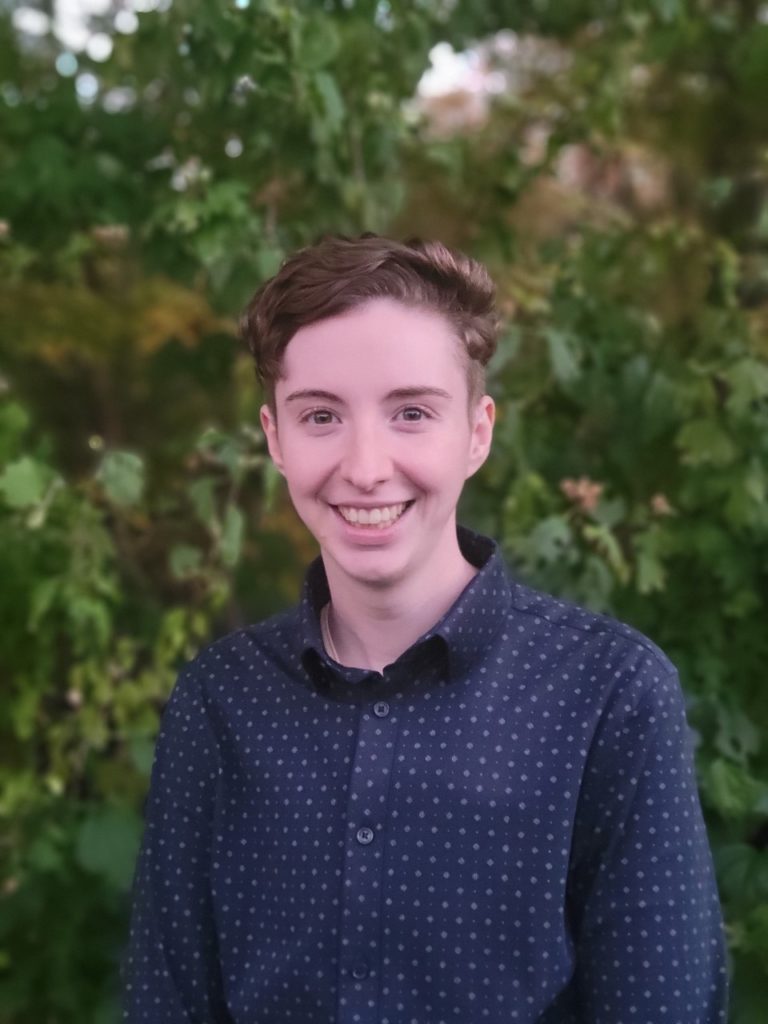In case of any technical or organizational problems, please contact: assistant@estd.org

Free Webinar For Early Career Researchers June 3rd, 2024, 7-8.30 PM (Berlin)
The ESTD Scientific Committee is delighted to invite you to join for free this second event of a series of webinars with live presentations by early career researchers!
Shae Nester, Ph.D. student at the University of North Carolina at Greensboro in the USA, and Breanne Kearney, Ph.D. student at the Western University, Canada, will successively present their groundbreaking work.
The overall duration of the webinar will be 90 minutes for the two researchers to present and discuss their work successively, i.e., 45 minutes for each researcher/project. The researcher will be accompanied and guided during this time by expert mentor and senior researcher, dr. Johan Vanderlinden.
Welcome to an inspiring event on:
Barriers to Mental Health Treatment for Dissociative Individuals

Shae Nester, Ph.D. student in clinical psychology, University of North Carolina, Greensboro, USA
Abstract
Individuals living with dissociation are often underserved in the mental health community. In fact, only 28% to 48% of individuals with dissociative disorders receive mental health treatment. In this webinar, we will review recent findings that explored barriers to accessing and continuing mental health treatment among 276 individuals who dissociate. We will discuss ways to mitigate these barriers to make access to mental health care more accessible for this community.
Shae Nester
Ph.D.Shae Nester (they/them) is a doctoral student pursuing a Ph.D. in clinical psychology at the University of North Carolina in Greensboro USA. Their current research focuses on using experience sampling designs to understand momentary dissociation and interoceptive functioning among trauma survivors. Prior to pursuing their Ph.D., they received their master’s degree in clinical psychology at Towson University, where they worked in the Treatment of Patients with Dissociative Disorders research lab with Dr. Bethany Brand. Here, their research was primarily focused on non-suicidal self-injury, and the assessment and treatment of dissociative disorders. As part of the research teams, Shae produced over 20 manuscripts. They serve as an ongoing research consultant for several external collaborations, including with the US Department of Veterans Affairs and University of Maryland SAFE Center. They have over 8 years of clinical experience working with trauma survivors, with a particular focus on severe childhood abuse, trafficking, and complex dissociative disorders. Shae was awarded the 2023 Outstanding Student Award from the International Society for the Study of Trauma and Dissociation for their critical contributions to the field of trauma and dissociation
Approaching the roots of trauma: A randomized controlled clinical trial of Deep Brain Reorienting

Breanne Kearney, Neuroscience PhD Student, Western University, Canada
Abstract
My current research is geared toward better understanding how sensorimotor mechanisms at both cortical and subcortical levels may be altered in trauma-related conditions such as post-traumatic stress disorder (PTSD), as well as studying the effectiveness of neuroscientifically guided sensorimotor-based treatments. Deep Brain Reorienting (DBR) is one such treatment as it is focused on the subcortical (brainstem) response sequence to trauma and trauma-relevant stimuli. Given that contemporary treatments have non-response rates of up to 50% and high drop-out rates of >18%, DBR is being investigated as a putative candidate for effective treatment of some individuals with PTSD. An interim evaluation of the effectiveness of an eight-session clinical trial of videoconference-based DBR versus waitlist (WL) control found significant between-group differences in CAPS-total and all subscale scores (re-experiencing, avoidance, negative alterations in cognitions/mood, alterations in arousal/reactivity) at post-treatment (CAPS-total: Cohen’s d = 1.17) and 3-month-follow-up (CAPS-total: Cohen’s d = 1.18). Importantly, attrition was low with only one participant not completing treatment. These findings provide emerging evidence for the effectiveness of DBR as a well-tolerated treatment that is based on theoretical advances highlighting alterations to subcortical mechanisms in PTSD and associated symptomatology.
Breanne Kearney
PhDBreanne is a Neuroscience PhD Student under Dr. Ruth Lanius' supervision at Western University, Canada, and she holds a Master of Science degree in Occupational Therapy from the University of New Hampshire, USA, and a Master of Research degree in Cognitive Neuroscience from University College London, UK. Previously, she worked with children with sensory challenges who struggled to manage their emotions and behavior in a variety of settings (e.g., home, school, in the community) using a play- and relationship-based approach. Her preparation for that work included advanced training at the STAR Center in Denver, Colorado under the supervision of Dr. Lucy J. Miller and Dr. Lisa Porter. Breanne is grateful for having learned so much from her clients, which led to her passion for researching the senses and embodiment (i.e., how the body and mind interact) after trauma. She is also passionate about exploring the use of bottom-up (i.e., body-based), relationship-focused approaches in the healing process.
